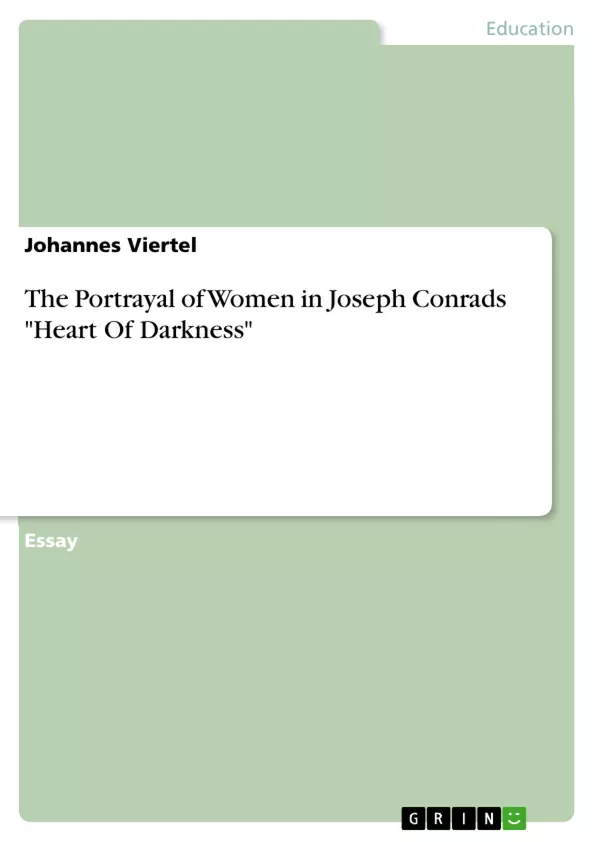This paper has the intention to display that the portrayal of women in Joseph Conrads "Heart of Darkness" is sexist and shows characteristic differences between the male and female gender in terms of intellect, dignity, power and character.
The novella "Heart of Darkness" by Joseph Conrad has been discussed in depth by various students, professors and literature experts. Opinions vary widely in the racism debate, colonization / imperialism, and the representation of the female gender. For many it is a great piece of fiction and far ahead of its time. For others, the advocacy of slavery and imperialism as well as the oppression of women characterizes this novella.
Table of Contents
- Introduction
- Kurtz's intended
- Kurtz's mistress
- Marlow's aunt
- Female side roles
- Conclusion
- Literature
Objectives and Key Themes
This paper examines the portrayal of women in Joseph Conrad's "Heart of Darkness" and argues that it is deeply sexist, highlighting the differences between male and female characters in terms of intellect, dignity, power, and character. It analyzes the agency of female characters, exploring their ability to make decisions that serve their own interests and needs within the context of the novella. The paper also explores the impact of the time period in which the novella was written and its connection to burgeoning feminism in the United Kingdom.
- Sexist portrayal of women in "Heart of Darkness"
- Agency of female characters in the novella
- Differences in intellect, dignity, power, and character between male and female characters
- Impact of the novella's time period on the representation of women
- The influence of burgeoning feminism in the United Kingdom at the beginning of the 20th century
Chapter Summaries
- Introduction: This chapter introduces the paper's focus on the sexist portrayal of women in "Heart of Darkness" and defines agency as a key concept for understanding the female characters. It briefly discusses different interpretations of the novella's themes and the potential influence of the time period on its representation of women.
- Kurtz's intended: This chapter focuses on the character of Kurtz's intended, analyzing her role in the novella. It explores the contradictory perceptions of her as both a perfect and idealized woman and a figure who ultimately lacks true agency. The chapter examines how her role is intertwined with Marlow's views on women and their place in society.
Keywords
This paper delves into the themes of sexism, agency, and gender representation in Joseph Conrad's "Heart of Darkness," examining the limitations placed on female characters and the power dynamics between men and women. Key concepts include female agency, intellect, dignity, power, and character, as well as the influence of the time period and burgeoning feminism in the United Kingdom.
- Citar trabajo
- Johannes Viertel (Autor), 2018, The Portrayal of Women in Joseph Conrads "Heart Of Darkness", Múnich, GRIN Verlag, https://www.grin.com/document/489445



